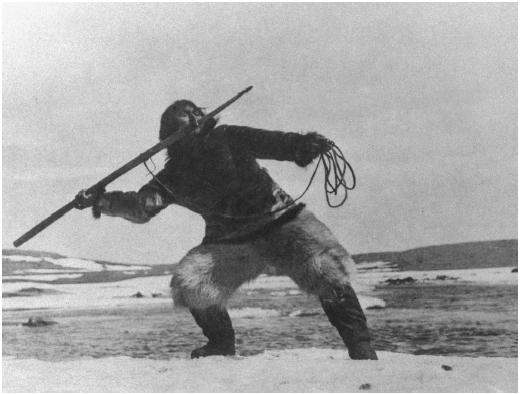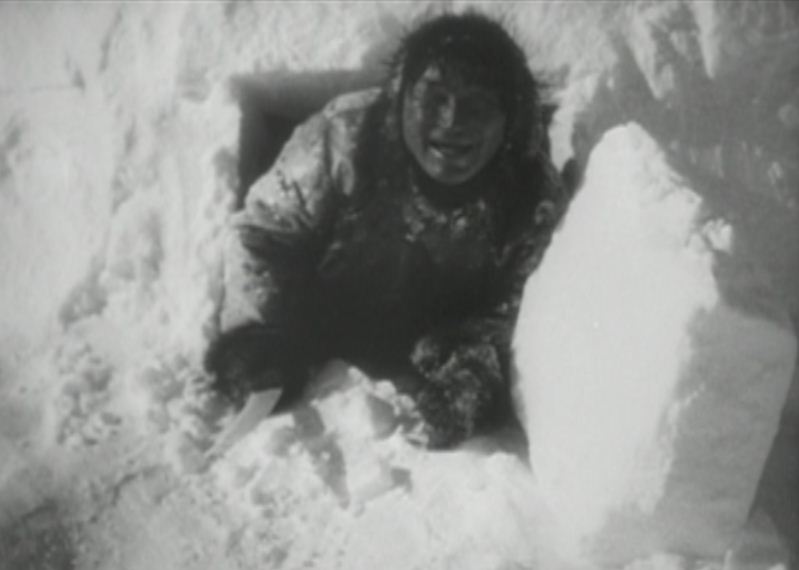The second week revolved completely around the differences between the very early anthropological films and the ethnographic films that were shot during the first half of the 20th century. Both readings that we had for this week and the videos and films we watched showed staggering changes in the attitudes towards ethnographic film making. Haddon, Rivers and their short films about the people in Torres Strait were just as static, theatrical and lacking in narrative as the first films of the Lumiére brothers. However, the films made by Flaherty showed a movement towards a narrative approach mixed with Malinowski's innocent eye and a huge amount of romanticism and idealism.
Film: Nanook of the North by Robert Flaherty
Flaherty's film is more about narrative than anything else. That is the best and worse trait of his film. Even though he is completely absent in his film and the viewer gets the feeling that the camera was just floating around Nanook and his family, I got the inkling during the screening that this is not really Nanook's story, but Flaherty's story about Nanook. A romanticised view of a world that did not exist anymore.
The whole film revolves around the theme of man vs nature and the brave fight for survival which we could observe through this mighty character, Nanook. That is the other novelty in Flaherty's take on ethnographic film making: character creation. He gives the audience someone to root for with a narrative that makes the whole story exciting. However, one wonders if this approach pushes reality and anthropological data into the background. In my opinion it does not do that necessarily, as Flaherty argued one must make a good story to dig out reality sometimes and I can subscribe to this point of view partially, albeit the feeling that this film is much more about Flaherty's take on Nanook's life than anything else bothered me sometimes.
The last topic that I have to touch on is Flaherty's essentialisation of culture. This is not only Flaherty's take on ethnography of the time, just like him many others presented one person or group as an essential representation of a certain culture. This can lead to over-generalisation, but it is not the worst of all evils probably. There are general traits in every culture and these can be shown through certain groups from a whole people, however one has to be cautious with such an approach because it can lead to the misrepresentation of culture.



Nincsenek megjegyzések:
Megjegyzés küldése